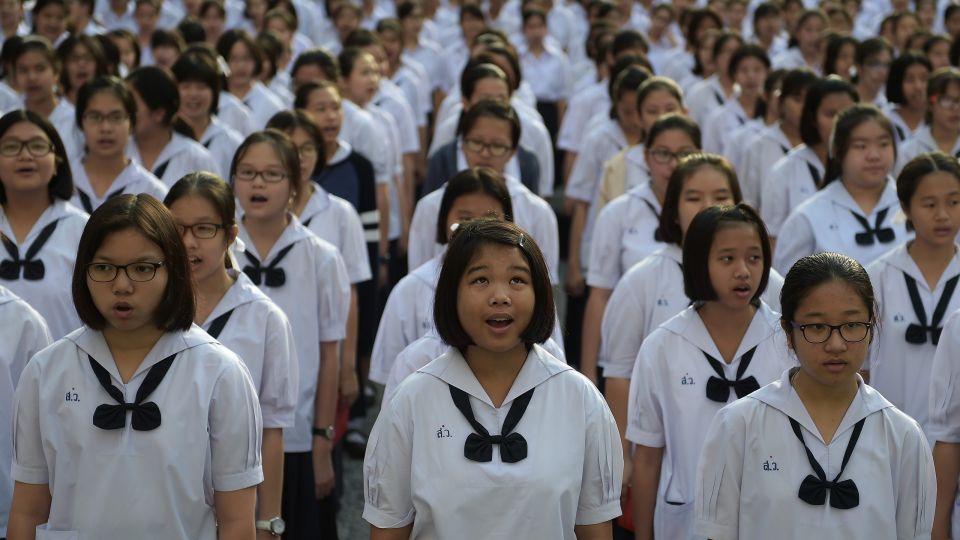February 18, 2019
More than half of the population of Southeast Asia is under the age of 30. Therefore, it stands to reason that this segment of the population will have an outsized influence in coming political contests. Candidates across the region have their eyes turned toward capturing young votes, and that mission is having an affect on their platforms, and the way they campaign.
Indonesia
In Indonesia, Millennials make up nearly half of the electorate, and as such, candidates are working hard to woo young people. But, according to research it’s a tricky voter segment to pin down—and one that has traditionally been less politically engaged.
One Jakarta-based pollster, Alvara Research Center found in one survey that only about 23.4 percent of young respondents reported that they follow political news. And, these young people have historically stayed away from the polls.
The rate of abstention has been on the rise in Indonesia since the 1999 elections with as many as 30 percent of registered voters opting not to cast ballots in 2014. The majority of those that chose to sit the election out were young voters.
The major campaigns for the presidential contest have made repeated calls for millennials to choose their candidate and then get out and vote. Gerindra Party chairman Prabowo Subianto’s running mate, former deputy Jakarta governor Sandiaga Uno has attended a number of youth-focused events, including the Indonesia Millennial Summit 2019.
And the incumbent, President Joko “Jokowi” Widodo has made use of some of his younger, hipper political allies to encourage millennial support. One of those allies, United Development Party (PPP) chairman Romahurmuziy has said the president is aiming to get at least 45 percent of the millennial vote.
But Millennials obviously aren’t just voters, as this generation ages, they are inevitably vying to become more directly involved in the political process, by becoming candidates themselves. Roughly 21 percent of the 7,991 candidates running for seats in the Indonesian House of Representatives are between the ages of 21 and 35.
Many of these candidates are making use of less traditional ways of connecting with potential supporters. Kirana Larasati, a 31-year-old television actress who’s running for a seat in West Java’s first electoral district for the Indonesian Democratic Party of Struggle, for example, posted a slickly edited YouTube vlogger-style video on her Twitter account answering questions from followers.
The video calls to mind the more viral stylings of another Millennial political campaign, that of Alexandria Ocasio-Cortez in the United States, offering a glimpse into a future of digitally savvy candidates.
Philippines
More the one-third of the voters in the Philippines are in the 18 to 35 bracket, according to the Commission on Elections, or Comelec, spokesperson James Jimenez, with some 1.5 million Filipino youth will newly eligible to vote for the very first time in this year’s polls.
Officials and organizations are encouraging high youth participation in the upcoming elections. Jimenez, for example told young voters choosing a candidate to support that “[the candidate] should know what you want, what your issues are. That’s what the youth should pay attention to,” he said.
The Parish Pastoral Council for Responsible Voting, a non-partisan, non-profit affiliated with the Catholic Church is working to encourage young voters to begin evaluating candidates. Their “One Good Vote” initiative seeks to implore youth voters to judge candidates based on three key criteria: character, competency and honestly.
Young voters have been turned off from political activity in the past. A report from the Philippine Daily Inquirer in early 2018 showed that youth who might otherwise consider participating in political life—either by running for office themselves, or by voting—were turned off by corruption and nepotism.
Thailand
Early research shows that election participation among young people in Thailand could be impressive this year. A survey of first-time voters carried out by Bangkok University found that 78.6 percent of the respondents said they would vote in the general election and 85.8 percent said they were monitoring political developments on social media.
While social media certainly isn’t just the domain of the young, this election will likely take on a distinctly digital tone, more so than any Thai election before, giving young digital natives a different perspective on their nation’s politics.
Thailand’s 2019 elections will be the first time votes will be counted for a national contest in eight years. The world has changed a lot in that time, making this is Thailand’s first full-on social media election.
The last time Thailand held a national election, in 2011, internet penetration in Thailand was less than one third, Twitter had a niche user base, had 10 million users, but no political party or individual candidate had yet to gain 1 million likes.
Compared to today, the social media of 2011 looks quaint. According to a report by Hootsuite and We Are Social, in 2019, there were 57 million internet users in Thailand, making internet penetration 82 percent. Active social media users make up 74 percent of the population. Thailand now has more than 46 million Facebook users. While General Prayut Cha-o-cha enjoys less support on the platform (his Facebook page has 502,000 likes), the page of former Prime Minister Yingluck Shinawatra has 6 million likes.


